A new visualization shows the SpaceX Starship releasing new Starlink satellites.


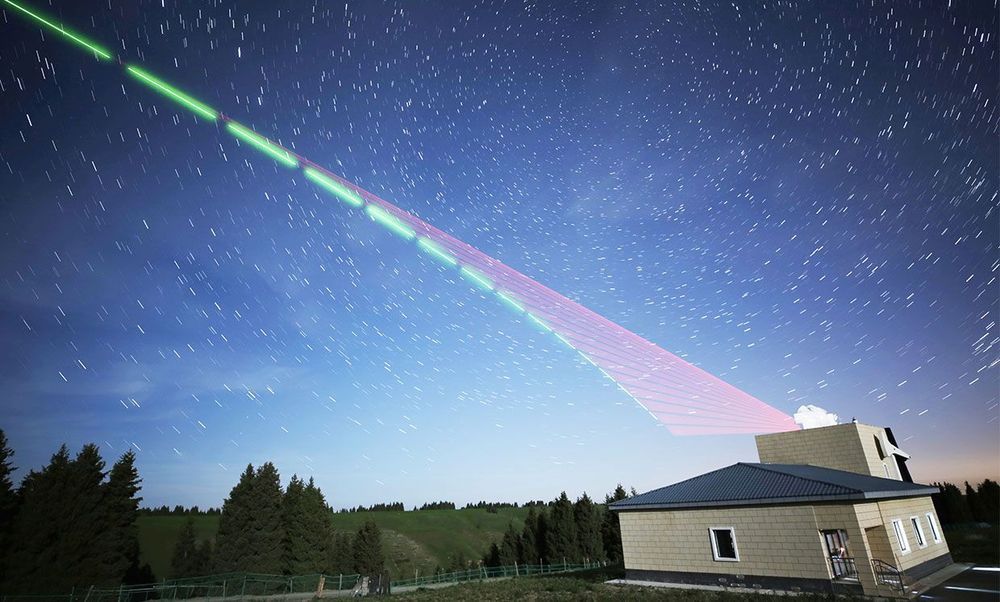
Now, the same researchers have achieved their goal of entanglement-based quantum cryptography using the Micius satellite. The scientists, who detailed their findings online in the 15 June edition of the journal Nature, say they again connected two observatories separated by 1,120 kilometers. But this time, the collection efficiency of the links was improved by up to four-fold, which resulted in data rates of about 0.12 bits per second.
A space-based, virtually unhackable quantum Internet may be one step closer to reality due to satellite experiments that linked ground stations more than 1,000 kilometers apart, a new study finds.
Quantum physics makes a strange effect known as entanglement possible. Essentially, two or more particles such as photons that get linked or “entangled” can influence each other simultaneously no matter how far apart they are.
Entanglement is an essential factor in the operations of quantum computers, the networks that would connect them, and the most sophisticated kinds of quantum cryptography, a theoretically unhackable means of securing information exchange.
Mike Stewart was able to recover the previously lost Apollo 10 LM software, as flown (also known as Luminary 69 Rev 2). He shows us how he did it, which, fair warning, is a pretty technical hack. And contrary to (yet another) internet myth, the flown software would have been perfectly capable of landing Apollo 10 on the Moon.
T-Shirt, Hoodie, Sticker and Mug with the “It Lands We Checked” logo:
Shirt: https://teespring.com/it-lands-we-checked?pid=211
Hoodie: https://teespring.com/it-lands-we-checked?pid=227
Sticker: https://teespring.com/it-lands-we-checked?pid=794
Mug: https://teespring.com/it-lands-we-checked?pid=658
The scan of the Luminary 69 listing available here:
https://archive.org/details/luminary6900miti/mode/2up
The recovered source code is here:
https://github.com/virtualagc/virtualagc/tree/master/LUM69R2
Video of Niklas landing Apollo 10 with the recovered code in NASSP:
Full list of recovered Apollo software and compilers:
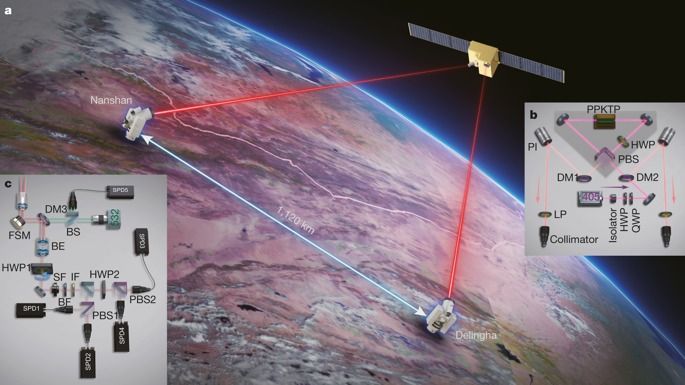
Quantum key distribution (QKD)1,2,3 is a theoretically secure way of sharing secret keys between remote users. It has been demonstrated in a laboratory over a coiled optical fibre up to 404 kilometres long4,5,6,7. In the field, point-to-point QKD has been achieved from a satellite to a ground station up to 1,200 kilometres away8,9,10. However, real-world QKD-based cryptography targets physically separated users on the Earth, for which the maximum distance has been about 100 kilometres11,12. The use of trusted relays can extend these distances from across a typical metropolitan area13,14,15,16 to intercity17 and even intercontinental distances18. However, relays pose security risks, which can be avoided by using entanglement-based QKD, which has inherent source-independent security19,20. Long-distance entanglement distribution can be realized using quantum repeaters21, but the related technology is still immature for practical implementations22. The obvious alternative for extending the range of quantum communication without compromising its security is satellite-based QKD, but so far satellite-based entanglement distribution has not been efficient23 enough to support QKD. Here we demonstrate entanglement-based QKD between two ground stations separated by 1,120 kilometres at a finite secret-key rate of 0.12 bits per second, without the need for trusted relays. Entangled photon pairs were distributed via two bidirectional downlinks from the Micius satellite to two ground observatories in Delingha and Nanshan in China. The development of a high-efficiency telescope and follow-up optics crucially improved the link efficiency. The generated keys are secure for realistic devices, because our ground receivers were carefully designed to guarantee fair sampling and immunity to all known side channels24,25. Our method not only increases the secure distance on the ground tenfold but also increases the practical security of QKD to an unprecedented level.
Were they paratroopers with flashlights, satellites or, as Internet users point out, a flying saucer?
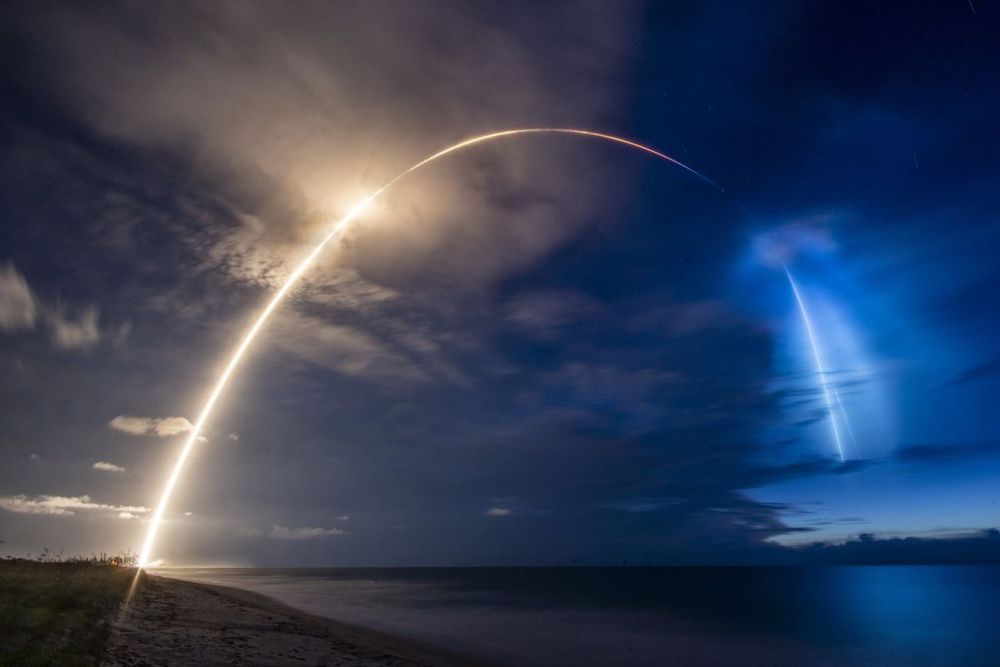
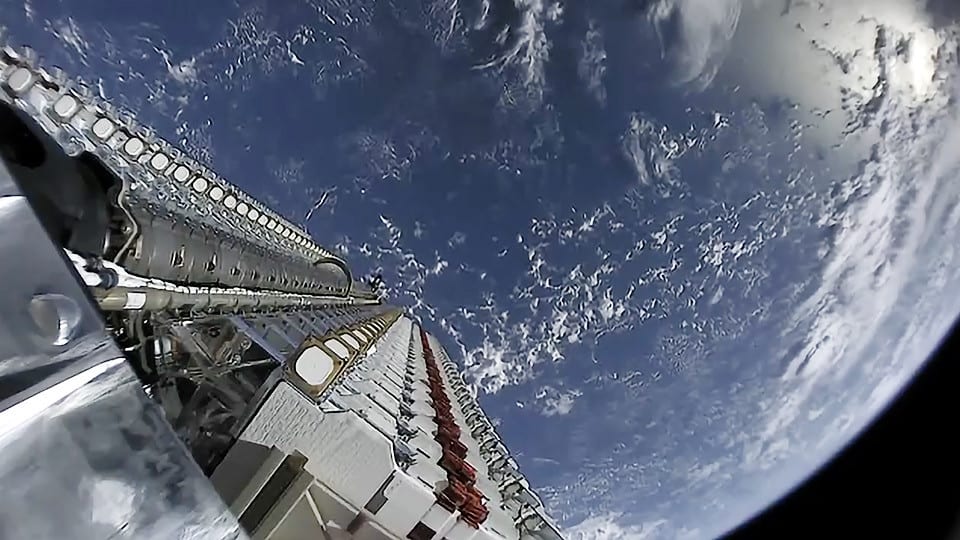
SpaceX updated the website for its Starlink satellite internet project on Friday, as the company continues to move closer to its goal of offering direct-to-consumer broadband from space later this year.
“Get updates on Starlink news and service availability in your area,” the website reads, with a submission form for an email address and zip code. The form allows prospective customers to apply for updates and access to a public beta test of the Starlink service.
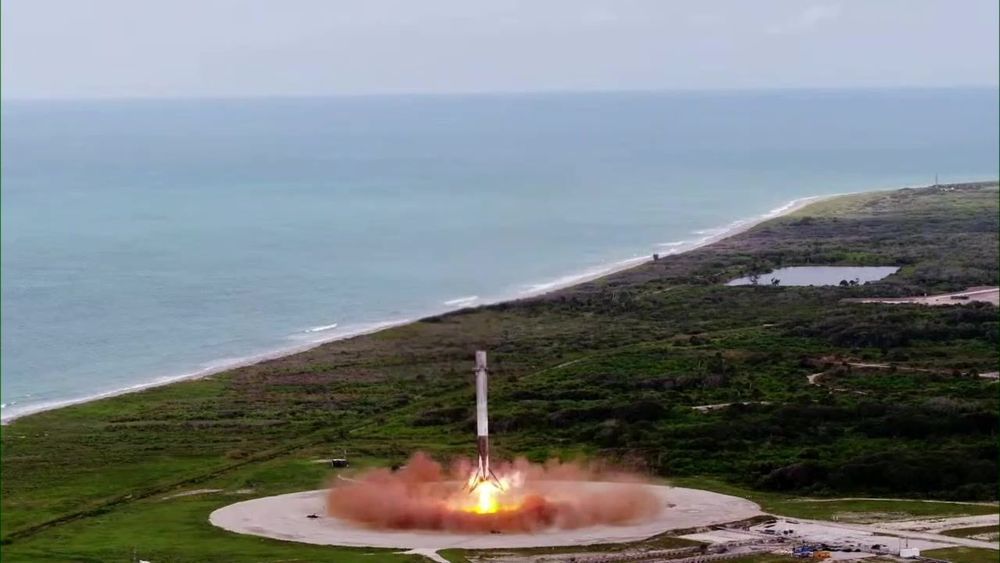
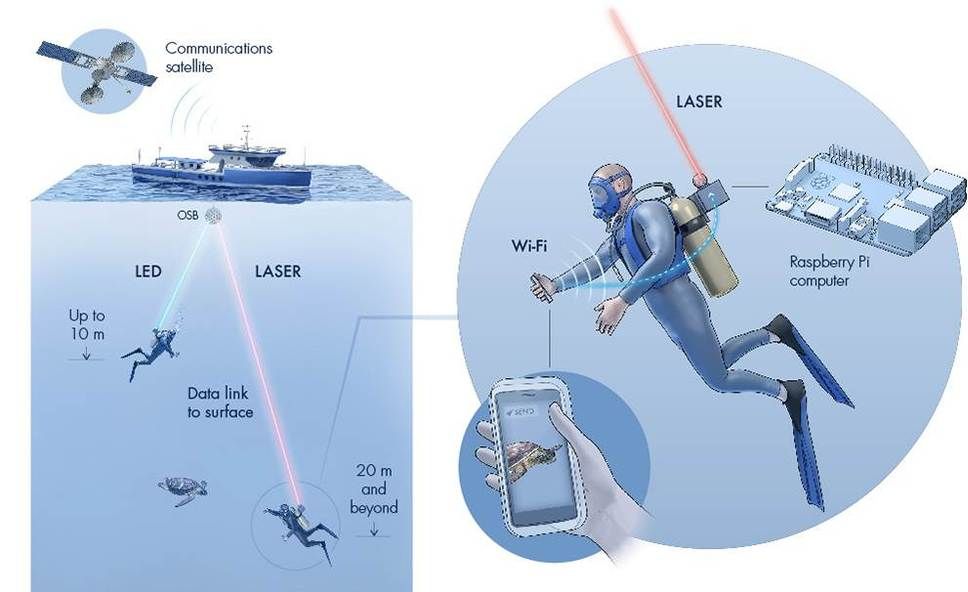
Radio waves travel poorly through the water, which makes it difficult for divers or submersibles to wirelessly transmit information to the surface. Scientists are trying to change that, though, by developing an underwater version of Wi-Fi.
Back in 2018, we heard how researchers at Saudi Arabia’s King Abdullah University of Science and Technology (KAUST) had used lasers to transmit HD video through water. Their experimental new system, known as Aqua-Fi, builds on that technology.
A user such as a scuba diver would start by sending data (such as photos or videos) from a smartphone contained in a watertight housing. That data would initially be transmitted in the form of radio waves, going just a few feet to a small device mounted on the diver’s air tanks.

A bug in a protocol used by virtually all Internet of Things devices exposes millions of users to potential attack, a researcher reported Monday. The fault centers on the Universal Plug and Play protocol, a 12-year-old implementation that simplifies connections among network devices such as computers, printers, mobile devices and Wi-Fi access points.
Billions of devices are theoretically vulnerable, the report stated, but only those with UPnP activated currently face risk of attack.
Turkish security engineer Yunus Çadirci uncovered the UPnP bug, named CallStranger, that could be exploited to gain access to any smart device such as security cameras, printers and routers that are connected to the Internet. Once access is gained, malicious code can be sent through network firewalls and other security defenses and reach internal data banks.